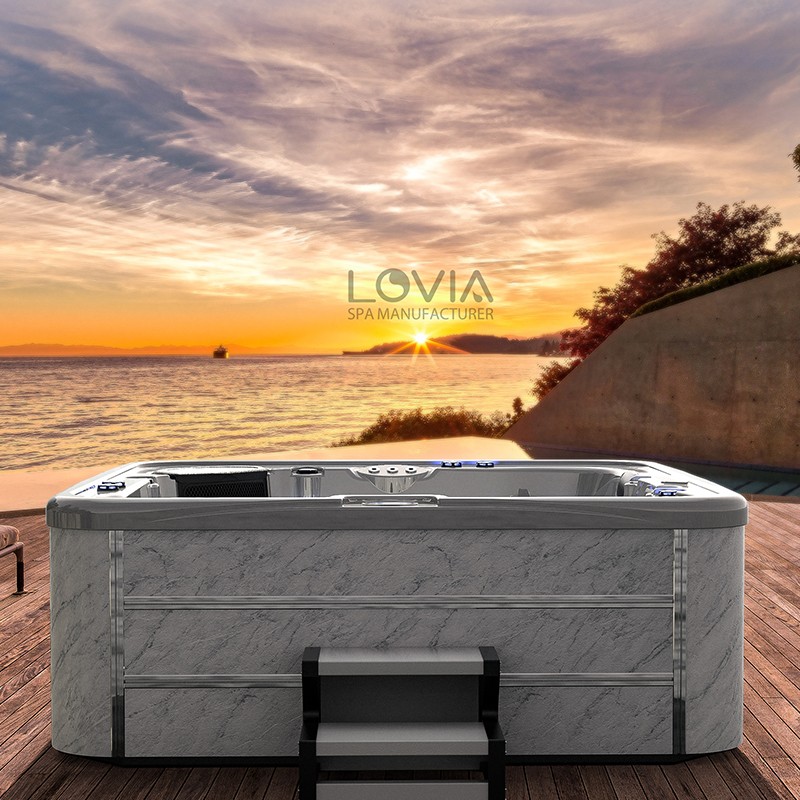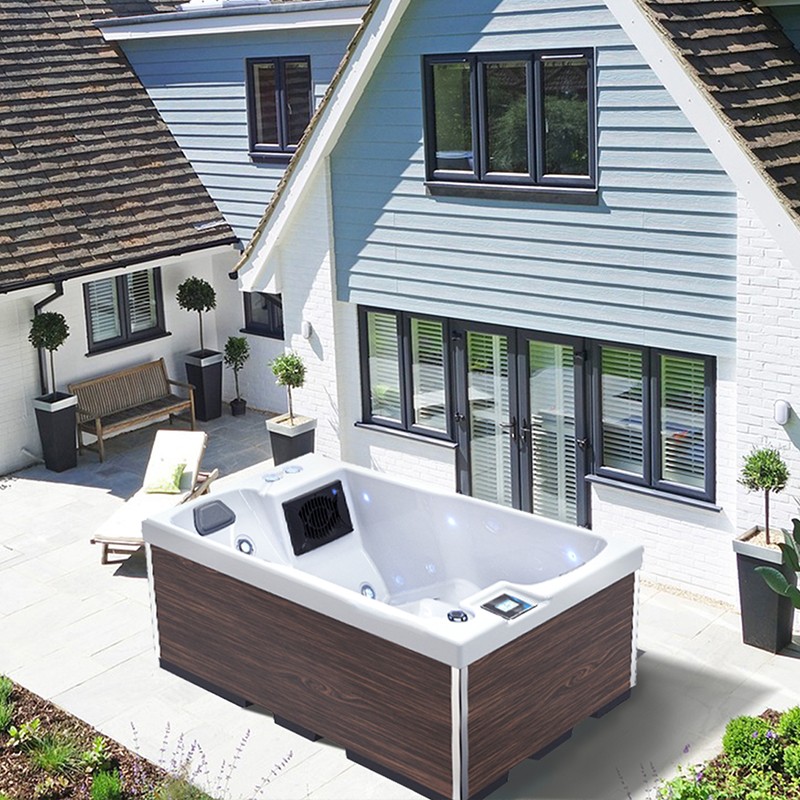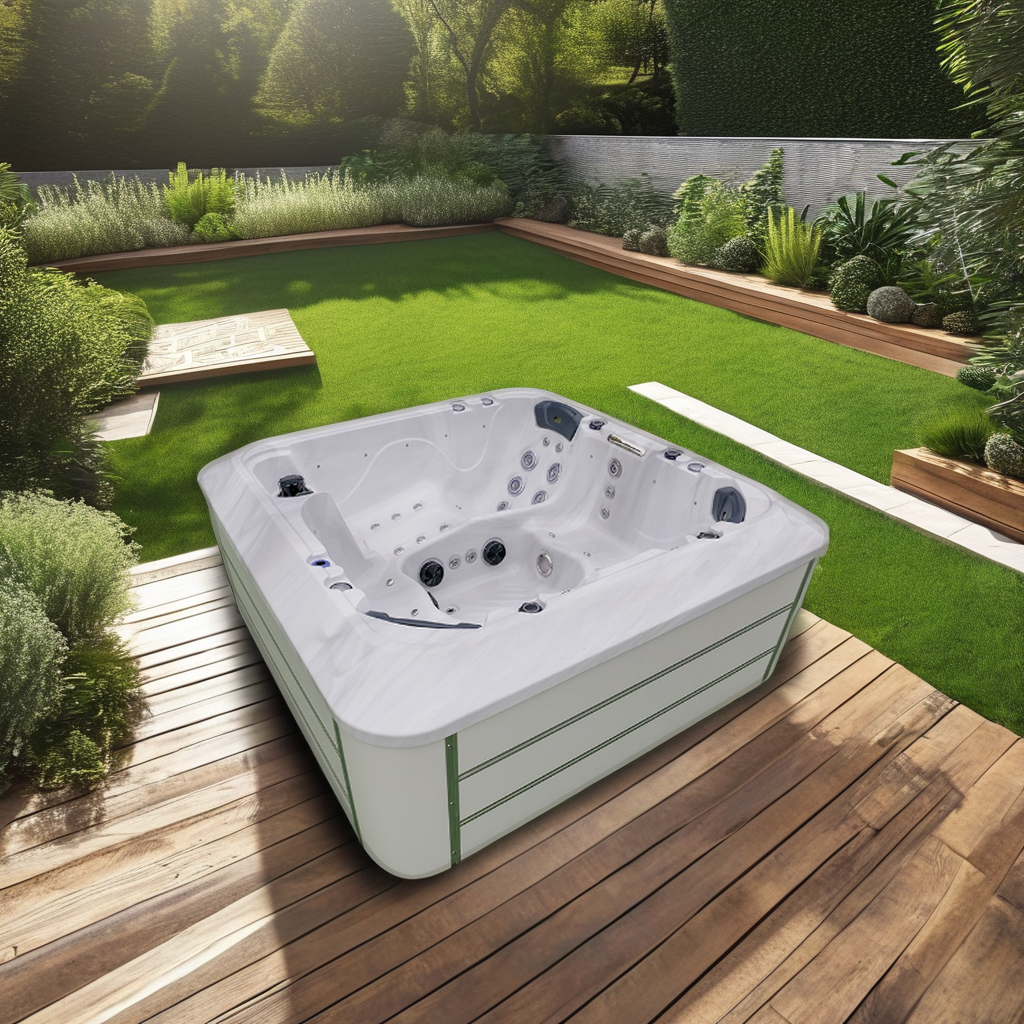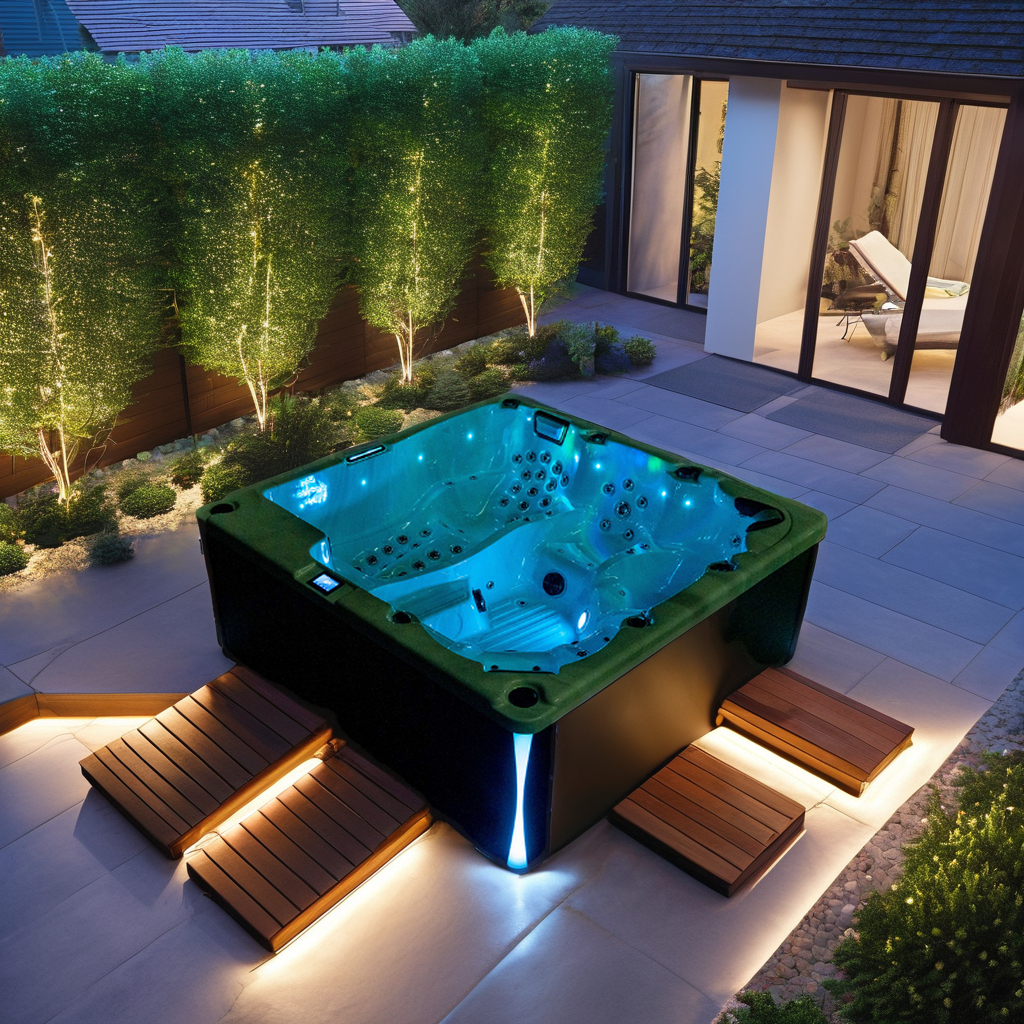
Can an Outdoor Spa Hot Tub Fight the Common Cold?
2025-09-01 15:35Outdoor spa hot tubs have become a staple in more and more home yards and patios. They not only provide relaxation and recreation, but are also believed to help relieve fatigue and discomfort through their hydromassage and thermal therapy effects.
However, the question of whether it's still appropriate to use an outdoor spa hot tub when you have a cold has sparked widespread discussion and questioning.
This article will comprehensively answer the question, "Is it appropriate to use an outdoor spa hot tub when you have a cold?" by examining medical knowledge, physiological reactions, efficacy characteristics, and safety precautions.

What are the functions of an outdoor spa hot tub?
An outdoor spa hot tub is a comprehensive leisure device that combines a constant temperature hot water system, a water circulation system, and a jet massage system. Its main functions include:
1. Constant temperature hot water
Hot water dilates blood vessels, promotes blood circulation, and helps relieve muscle stiffness.
2. Hydro-Jet Massage
The built-in jets generate high-pressure water flow through a pump, providing a deep massage for the shoulders, neck, back, and legs.
3. Steam and Moisture
The steam generated by the hot water helps moisten the respiratory tract and relieve nasal dryness.
Thus, an outdoor spa hot tub is not only a relaxation tool but also offers therapeutic and health-supporting benefits.

What are the common symptoms and physiological aspects of a cold?
To answer the question, "Is it appropriate to use an outdoor spa hot tub when you have a cold?", we first need to understand the physical changes associated with a cold.
Common cold symptoms include:
• Nasal congestion and runny nose
• Throat irritation
• Cough
• Fever or low-grade fever
• General fatigue and muscle aches
These symptoms primarily stem from the inflammatory and metabolic changes triggered by the body's immune response after a viral infection. During this period, the immune system is operating at full capacity, and temperature regulation and energy consumption are more strained than usual.
What are the benefits of using an outdoor spa hot tub when you have a cold?
Although a cold is a temporary imbalance in the body's immune system, moderate use of an outdoor spa hot tub still offers certain benefits:
1. Relieves nasal congestion and shortness of breath
The steam from an outdoor spa hot tub moisturizes the respiratory tract, helps loosen nasal mucus, and thus relieves nasal congestion.
2. Relieves muscle aches
Colds are often accompanied by body aches. The warm water and the impact of the jets can relax muscle fibers and alleviate soreness and discomfort.
3. Improves blood circulation
Warm water stimulates vasodilation, increases peripheral blood flow, and helps speed up the elimination of metabolic waste.
4. Promotes relaxation and sleep
Quality rest is especially important during a cold. The comfort of an outdoor spa hot tub can help improve sleep quality, thereby aiding recovery.
This shows that moderate use of an outdoor spa hot tub does have a positive effect in alleviating some cold symptoms.

Why do warmth and steam relieve cold symptoms?
Many medical and health organizations indicate that warm water and steam can provide short-term relief from several cold symptoms. A warm bath or steam bath can increase respiratory humidity, lubricate the nasal passages, and help thin and drain thick secretions, temporarily relieving nasal congestion. Furthermore, warmth can relieve general aches and fatigue by dilating surface blood vessels and relaxing muscles.
It's important to emphasize that these reliefs are primarily symptomatic, not causal. Steam and heat therapy do not shorten viral replication or replace antiviral and symptomatic medications.
In an outdoor spa hot tub, the steam from the water surface, the increased surface blood flow caused by the heat, and the bubbles/water flow from the jets combine to create a combined effect similar to "steam inhalation + hot compress + massage," which explains the subjective comfort many cold sufferers experience.
Appropriately utilizing these physiological effects can improve nasal breathing, relieve muscle pain, and promote relaxation in the short term, but they should not replace necessary medication or medical evaluation.
What are the risks of using an outdoor spa hot tub when you have a cold?
However, using an outdoor spa hot tub when you have a cold isn't always appropriate. Failure to exercise proper caution may result in potential risks:
1. Caution for those with high fever
If a cold is accompanied by a high fever and body temperature is already significantly elevated, entering a hot water environment at this time may further increase body temperature and increase the strain on the heart and circulatory system.
2. People with limited cardiopulmonary function
The warm environment of an outdoor spa hot tub may increase cardiopulmonary stress. People with asthma, chronic heart disease, or high blood pressure should exercise extreme caution when using a hot tub during a cold.
3. Risk of dehydration
Hot water may cause increased sweating, and combined with the body's inherent need for fluids during a cold, failure to maintain adequate hydration can easily lead to dehydration.
4. Prolonged use
Prolonged soaking (over 30 minutes) may cause overheating, dizziness, or blood pressure fluctuations. It is recommended to limit soaking to 15-20 minutes.

How to safely use an outdoor spa hot tub when you have a cold?
To ensure safer use of an outdoor spa hot tub when you have a cold, the following tips are recommended:
• Limit use time: Avoid soaking for more than 20 minutes at a time to avoid excessively raising your body temperature.
• Stay hydrated: Drink plenty of warm water before and after soaking to prevent dehydration from sweating.
• Maintain a moderate water temperature: Keep the water temperature between 37°C and 39°C, avoiding temperatures too high, especially not exceeding 40°C.
• Maintain good hygiene: Outdoor spa hot tubs must be kept clean and disinfected to prevent secondary infections.
• Adjust according to your body's reactions: If you experience dizziness, palpitations, shortness of breath, or other discomfort during use, stop immediately.
• Consult a doctor if necessary: If you have a cold accompanied by a chronic illness or a special medical condition, it is best to consult a healthcare professional before use.
Outdoor Spa Hot Tub: Who are suitable for colds and who are not?
People who are suitable for using an outdoor spa hot tub:
• People with only mild cold symptoms and no high fever;
• People with nasal congestion, a mild cough, or muscle aches who need relief;
• People in good health with no cardiovascular or pulmonary disease.
People who are not suitable for outdoor spa hot tubs:
• Colds accompanied by a high fever (temperature over 38.5°C);
• Chronic conditions such as heart disease, high blood pressure, or asthma;
• Extremely weak or suffering from other acute illnesses.
"Is it suitable to use an outdoor spa hot tub for colds?"
The answer is—usually, but caution is advised!
When used moderately, an outdoor spa hot tub can relieve nasal congestion through steam, relax muscles through the warm water, and improve blood circulation and metabolism, thereby helping to alleviate some cold symptoms. However, it is not a substitute for medication and should not be used rashly in the presence of a high fever or weakness.
Therefore, the best approach is:
1. For mild colds without a high fever, moderate use of an outdoor spa hot tub can help relieve symptoms;
2. At the same time, pay attention to hydration, controlled use time and water temperature, and maintain good hygiene;
3. If you have severe symptoms or pre-existing health conditions, consult a doctor first.
Outdoor Spa Hot Tubs: Professional Answers to Common Questions (FAQ)
Q: I only have a runny nose and a cough. Can I soak in a spa?
A: If you have no fever, no serious heart or lung disease, and the outdoor spa hot tub is private and well-maintained, a short (15–30 minute) gentle soak is generally safe and can relieve nasal congestion and muscle aches. However, avoid sharing a bath with others to reduce the risk of transmission.
Q: Can I soak after taking antipyretics for a cold?
A: Antipyretics masking body temperature do not eliminate infection or potential risks. If your temperature is normal due to antipyretics and you are in good spirits, you should still exercise caution and consult a doctor first to avoid exacerbating the condition through heat therapy.
Q: Can steam still relieve nasal congestion outdoors in strong winds?
A: While outdoor ventilation can help reduce the risk of some aerosol transmission, steam quickly dilutes, potentially reducing the local effect of "steam inhalation." If the primary purpose is to relieve nasal congestion with steam, you can stay briefly in a relatively enclosed bathing area (with caution) or switch to steam therapy from a hot towel or shower.
Q: What symptoms should prompt immediate exit from a hot tub?
A: If you experience dizziness, palpitations, chest tightness, severe breathing difficulties, nausea, vomiting, excessive sweating, or confusion, you should immediately remove yourself from the hot water, seek rehydration in a cool area, and seek medical attention.
Are your spas suitable for hotel or commercial use?
Absolutely. We supply commercial-grade spas and swim spas suitable for hotels, gyms, and resorts. Our systems use premium components and reinforced structures, backed by a 5-year warranty on the frame and 2–3 years on key parts. As a professional spa manufacturer, we offer volume discounts and custom packages for hospitality projects. Contact us!
